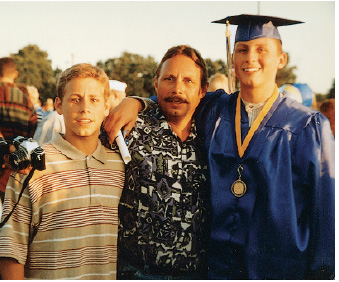The Laws of the Ring (25 page)
Read The Laws of the Ring Online
Authors: Urijah Faber,Tim Keown
Tags: #Sports & Recreation, #Self-Help, #Biography & Autobiography, #Sports, #Personal Growth, #Success, #Business Aspects
I called Sanchez. He had graduated from Bakersfield and had coached there. He needed a job and would be a great addition to the UC Davis program. I had recently bought my first house and Dustin had just moved out, so I added an incentive: six months of free rent for Matt to get settled in the area.
Matt and I could have easily ignored each other at that wrestling camp and held on to our rivalry long after it had officially ended. I could have been envious of his successâI was never an NCAA All-American, and he was twice. I could have held a grudge against him for causing me humiliation in my final college wrestling match.
Instead, he joined us under the umbrella. We became friends and he was the first person who popped into my head when an opportunity arose. He took the job and ended up living rent-free at my house for the six months I promised. He coached at UC Davis for a year, and during that time I started my gym and he got to see the team we were forming both in the gym and on our block of houses. We were doing what we wanted to do without chasing down money, and we were having fun doing it.
“I like your lifestyle,” he said. “I'd like to live the way you guys do.”
“Well, then come manage the gym,” I said.
And so Matt Sanchez, my bitter rival, ended up managing the gym for two years. He even trained and ended up with two pro MMA fights. He also won one FILA World Championship and several other international competitions in submission wrestling. During the time he was managing the gym, sometime toward the end of 2008, the house next door came up for sale. Matt and I bought it togetherâI fronted the down payment and he pays the mortgage.
Through a couple of wrestling relationships, Matt came upon a business opportunity in the summer of 2009. With home foreclosures rampant throughout the country and particularly prevalent in the Sacramento region, he started a business that does yard workâmowing, trimming, etc.âfor the banks who are attempting to off-load foreclosed homes. Real estate agents and neighbors are happy to see the yards of abandoned homes kept up, and Matt's business exploded. He went from three employeesâother friends who lived on the blockâto more than sixty. What started in the garage expanded to four different office spaces. It quickly became the biggest company of its type in the country, and in a short amount of time Matt went from being an assistant wrestling coach to the owner of a multimillion-dollar business. He's always in need of workers, so new fighters who come to the gym in need of some extra money can always piece together enough work to keep training by mowing lawns for Matt.
Even though he's not a fighter, Matt is a part of our community of fighters. He still lives next door, now with his girlfriend and son, Jaxon. And there's still a hole in the fence we use to go back and forth. His son is getting the same energy that I got growing up with an upbeat community as part of an extended family. We are still competitive with each other in a bunch of different ways, including land acquisition and business success. We laugh when we reminisce about being crammed in my first house on the block, and the way we would carpool around Sacramento to save a buck or two on gas. It's hard to remember that
this
was my enemy, a guy I wanted to punch for chewing his gum too loud.
A
t the end of our stay at Pendleton, Phil, Rich, Dominick, and I went to a Japanese restaurant in downtown San Diego with the drill sergeants and the production crew. At first, Dominick hadn't planned to go, but by the end of the trip he was ready to be with his enemy. I was sitting with Phil and the Marines. Dominick was sitting on the other end of the table near Rich and the producers and the television people. Phil and I, especially, were having a blast. We were telling stories and listening to the drill sergeants tell their stories. (They'd relaxed quite a bit by now.)
Dominick was missing out. I could sense him watching us from the other side, and I was happy when he picked up his chair and walked all the way over to the other side to sit with us. It was telling, because it evoked one of the lessons I always try to teach our fighters: If you feel like you want to do something, there's no reason why you shouldn't.
Dominick wanted to be part of the conversation and part of the fun at the end of a hard day. We put our differences aside and sat there and had a great time. At that moment I felt we had become strictly competitors on an athletic level and no longer enemies in life. It took some work to create a tiny crack in the shell, but we both made the effort. I understood him better, and he understood me, and we discovered we had far more similarities than we'd ever have known had we not been forced to spend a little time together. We even held some preliminary discussions about getting him the right management team so he could take his career where he wanted it to go.
I'm not perfect, but I look for the positive and try to make things work. It can be difficult to seek out the positive, especially in difficult people who seem unwilling to meet you halfway. Dominick, as it turned out, wanted to meet me halfway and squash the beef. We both broke through each other's insecurities and gained power from the effort.
So, when you know someone has a tendency to be negativeâeven someone you might see as a rival in lifeâcall his bluff. Give him a compliment and watch his attitude change immediately. It's powerful stuff.
There's No Excuse for a Lame Excuse
I
f you've been reading this book from page one, this law might seem redundant, but I really need to drive the point home, because if you want to work toward a more fulfilling, passion-centered life, taking stock is only half the battle. The competency model I wrote about earlier is a great place to start: You need to understand your strengths and weaknesses. But once you do thatâonce you conduct an honest assessment of who you are and what you can doâyou have to begin to eliminate one of life's major toxinsâexcuses.
That's rightâeliminate them altogether. Excuses are an infection. They start in one place and then expand until they become a permanent part of your personality. They hinder productivity because they keep you from honestly evaluating who you are. If you believe there's always some external force at work keeping you from success, whether it's a boss who doesn't like you or a spouse who doesn't understand you, you will never be able to deal with who you really are. And if you can't do that, you can't employ the Laws of Power to improve your life. These unseen forces will forever remain in your way.
Excuses, in many ways, are a form of envy. They're a way to dodge responsibility as a means of explaining why someone else has something you don't. They're a way of avoiding accountability by shifting blame. Nothing good can come from that approach.
Take my second fight against Dominick Cruz. He fought a good tactical fight and won by decision. From my standpoint, I thought I won the fight, because by my estimation, I was the more aggressive competitor. But judges don't always reward the aggressor. My biggest fault, from a
tactical
standpoint, was to fight for the knockout. That was my mentality going into the fight, and I didn't adjust to fight a more tactical, points-oriented fight, which, when it comes to a decision, is what it's all about.
This was my biggest moment: my first UFC showcase fight and my chance to seize my first UFC title. I was proud of my performance and felt Dominick and I gave everyone watching a good show, but two things were key to how I responded. One, I wasn't reveling in it, but I accepted the fact that I lost fairly; two, I wouldn't allow a loss, by external standards, to dictate my self-worth. Dominick and I competed respectfully and fiercely, we walked away without injury, we had a whole lot of fun. I hope we do it again soon.
At the beginning of this book, we discussed passion and how too few people can identify their own. As an exercise, I suggested you make yourself your passion, and assess what you find fulfilling as an individual in order to help you become a contributing and valued member of your community. Focus on your own small daily triumphs and spend some time being conscious of every decision you make. Understand what makes you feel good and what doesn't. In time, you will reach conclusions about yourself and develop a sense of purpose.
Excuses are among the most damaging passion-stoppers. You can find an excuse to avoid doing just about anything, but the truth is, your passion can't wait. It's too important.
When I started my fighting career, I could have relied on any number of excuses to give up on my passion.
The promoter didn't call me back . . . I might get hurt . . . My friends don't think it's a good idea . . . There's no money in it . . . I've never had any formal training . . . It might never escape the shadows of Indian casino parking lots and ballrooms . . . It would be a waste of my college education . . . There's no security.
Each one of those would have been enough for some people to decide it wasn't worth the time or the effort.
There are undoubtedly a thousand excuses standing in the way of your making the decision to pursue your passion, but there is always
one
reason
why you should move forward: It's your life, and you will get more out of it. Is there anything else that even compares to that? You could pile up all the excuses running through your head and I guarantee you that one reason stands taller than all of them combined.
Go slow if you must.
Go easy if you must.
Just go.
I
'll leave you with this: the ultimate lifestyle. This is the culmination of putting your passion to work. If you're living the dream, you're coming as close as you can come to incorporating your passion into every aspect of your life.
There are many avenues to this destination and it's subjective. My friend Jaimal Yogis lives the dream. From the moment he ran away from home and bought a plane ticket to Hawaii as a high school student, he followed his passion. (I'm not
endorsing
that approach . . . but it's one way to do it.) He studied Buddhism and surfed and wrote a book called
Saltwater Buddha
that allowed him to explain his philosophy to a wider audience. He lives his life on his terms, without regret.
My friend Matt Sanchez lives the dream. He came up with a brilliant business ideaâyard maintenance for foreclosed homesâand built it up to the point where it essentially runs itself. He hired like-minded people who are full of potential, and they work in a collaborative, productive environment, with plenty of free time to fill as they please.
To live the dream, you have to have the right focus, the right mentality, and the right lifestyle. You know what you like to do, and you've figured out how to make your life revolve around your passion. You have a job you enjoy doing. You love your work and find fulfillment in doing it.
You have the right mentality. That mentality is believing,
Hey, I can do anything I want if I work hard and I'm smart about it.
If you're living the dream, you have a job, a career, and a life that revolves around the things you love. You know what you want to do, you know how to do it (that is, you have the talent), and you've taken the ultimate step: You're doing it.
This is where you want to be. From this day forward, you should strive to make some progress toward reaching this goal. It's not always easy, but it is worthwhile.
It's a wonderful feeling. To be positive about something every single day is a gift. It awakens you to the world and all the great things in it. You want to pursue the goal of seeing the world through a wide-angle lens. Living your passion allows you to expand your worldview and live a life that contains far less worry about how you are being perceived. There is less judgment and fewer judges.
Every day when I wake up, I feel I'm living the dream. This doesn't mean things are always perfect or easy. It means I enjoy life and I'm prepared for the turbulence that is inevitable throughout it. It's not just a cliché; it's a way of life. I pursued my passion when that particular passion wasn't popular. I thought positively and acted with persistence. I resisted fear and avoided bad habits and never made excuses. I looked at opportunities and made a point to sieze them. I've won and lost with dignity, and I took notes along the way. I've found joy in sharing my successes with a community of like-minded people. I keep an open mind and I'm always eager to learn. But don't misunderstand me; my journey's not done yet, far from it. Living your dream isn't about perfection. It's about knowing who you are and believing anything is possible. I continue to believe that anything is possible, and I believe you should, too.
This book is written about my laws, things that I've learned and experienced from my life so far. I hope you enjoyed my opinions and viewpoints, however, I encourage you to let yours carry the most weight. Think about what you want from life and determine what laws you want to live by, on your journey. Enjoy the road you travel, look forward to all the destinations ahead, and let passion lead the way.
I learned a lot throughout this process, and I was fortunate to have had some excellent teachers.
First, I'd like to thank my managers: Mark Schulman, Jeff Meyer, Mike Roberts, and Mike Castrillo. My literary agent, Richard Abate, believed in my unconventional idea and stuck with it until it became real. Along those same lines, my editor at HarperCollins, Adam Korn, pushed me to make the book as unique as it could be. Trish Daly at HarperCollins made sure the gears worked smoothly.
And of course, I'd like to thank each of the characters in the book for allowing me to share their stories.

Signature chin.
Â
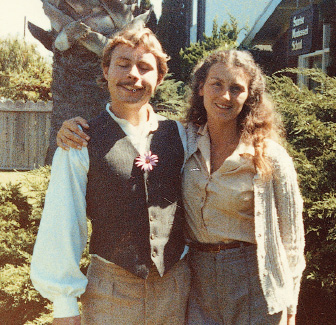
Peace, love, and happiness!
Â
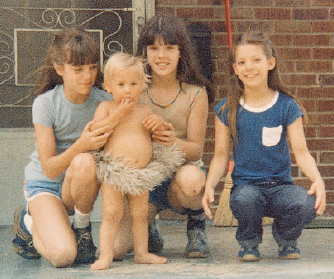
Playing dress-up with the neighborhood girls.
Â
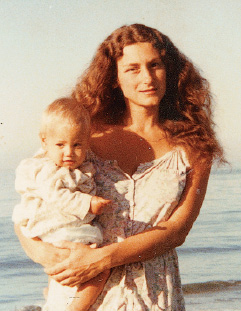
Mom and me, always drawn to the ocean.
Â
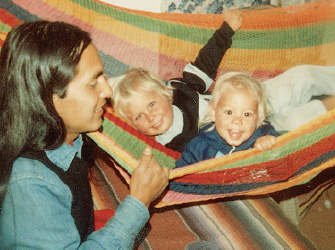
With Ryan in a hammock during the early Christian commune days.
Â
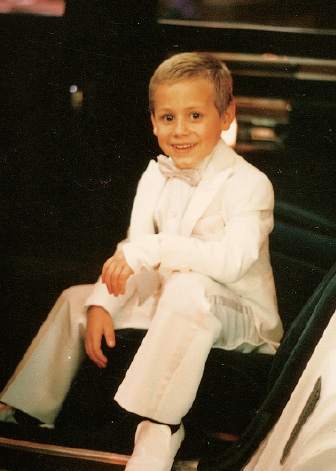
Modeling event. I was pretty used to being in front of a camera.
Â
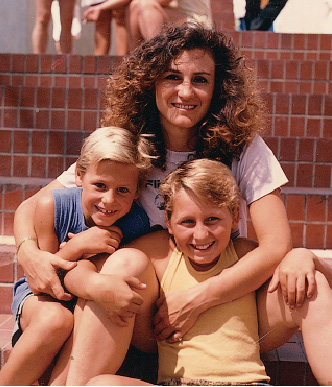
After the J.C. Penney state fair fashion show.
Â
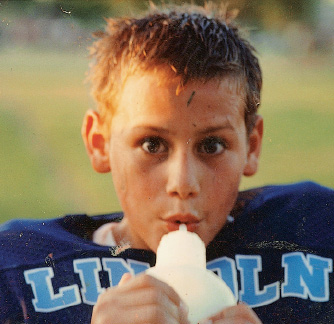
Lincoln Colts, seventh and eighth grade. We moved from downtown Sacramento to the small town of Lincoln when I was in seventh grade.
Â
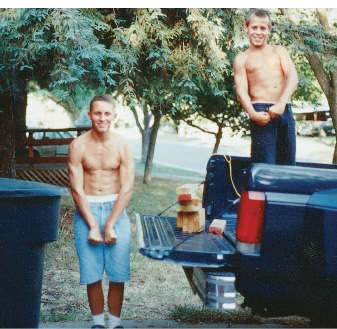
I always looked up to Ryan. He beat me in the muscle category when I was in eighth grade.
Â
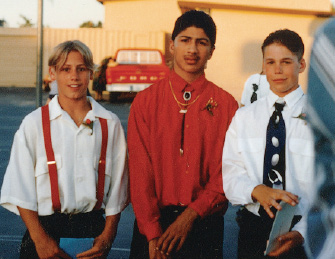
Eighth-grade graduation with a hand-me-down shirt.
Â
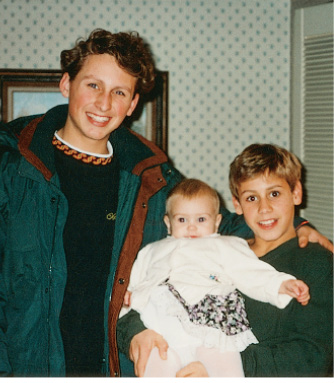
Happy to have our new baby sister, Michaella.
Â
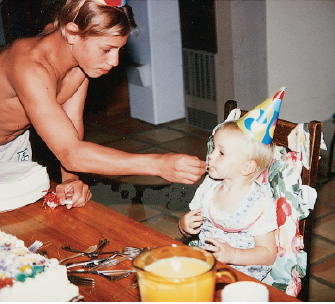
Â
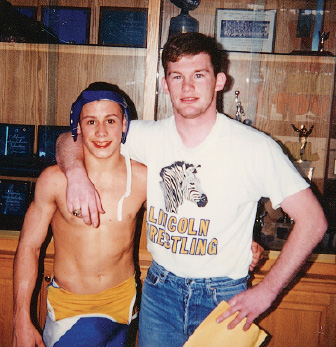
One of many bloody lips.
Â
